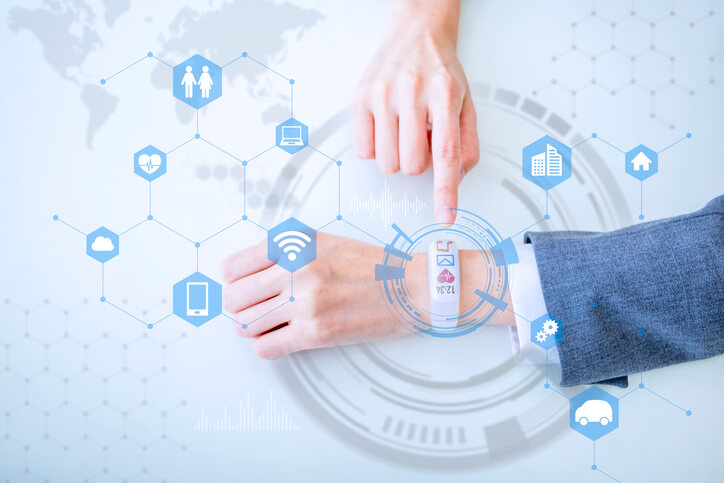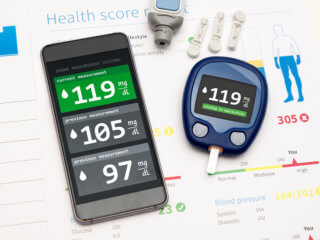There are around 165,000 mHealth apps available in the market. The number of mHealth apps doubled from 2013 to 2015, and 90% of the apps remain free for the users to use. There is an emerging trend of wearable devices and associated application the mHealth industry with apps range from tracking physical activity to treating chronic diseases. As the number of eHealth apps increases so does the importance of health data exchange among the organizations and countries.
The steep rise in the number of mHealth apps and the increasing interest of entrepreneurs to develop mHealth products have made it mandatory to develop standards and guidelines that lay down the foundation for the health data exchange, and a code of conduct that ensures quality and reliability of the data being generated.
Regulatory perspectives for mHealth – An industry code of conduct for health data exchange
Mobile devices allow sensors to collect massive amounts of data such as medical data, heart rate, physical activity, calories intake and sleeping patterns. This data helps in early detection and prevention of diseases which lays the foundation for a sustainable and more efficient health care system.This data also empowers patients and turn them from passive caretakers to active consumers of the health care market.
European Commission adopted a green paper in 2014 in which they asked all stakeholders for their inputs on overcoming significant challenges to mHealth deployment which include privacy and security of the patients, quality and transparency, and legal framework. High privacy and safety tools are required, and highly advanced encryption algorithms should be used to prevent secure platform to the users and to build their trust. Studies have shown that current lack of confidence among users poses a serious challenge to mHealth apps deployment.
Participants of the green paper consultations felt a strong need of having a certification scheme to assess mHealth apps and setting up national bodies to review mobile health apps to ensure validity and reliability of the data provided by mHealth apps.
Safety and performance requirements of the lifestyle and wellbeing apps should be covered by legislation, soft law or certification authority.
| Recommended for you | |
| Achieving interoperability in eHealth systems in Europe | |
| Regulatory and policy framework for digital health | |
| Startup policy framework in India |
Green Paper on mHealth
Green Paper on mHealth gave an excellent overview of the challenged plaguing mHealth sector. Erik Vollebregt, one of the participants of the mHealth stakeholder’s group is the view that we have a long way to go before releasing a green paper which can be adopted for regulatory procedures in the industry.
The paper fails to specify the distinction between the medical device and a lifestyle app. New regulations define medical devices as physical objects and do not consider the transition of medical devices as things to medical devices as a service. mHealth code also does not talk of the guidelines to ensure compliance with the enforced regulations and procedures.
Industry perspectives: New frontiers for connected health
Data generated by 2020 will rise to 44 Zettabytes and will mostly comprise of unstructured data which cannot be put in traditional relational databases. A couple of challenged plaguing the current health care system includes lack of health care professional, increase in chronic diseases and surge in health care costs. By 2020, the health sector will have the absence of 13 Million health care professionals. This will lead to increase in cost incurred on health care. 70% of the EU health care cost is caused by NCDs.
The worldwide shortage of trained medical professionals which makes it highly valuable to automate data analysis and handling. Data analytics has moved on from descriptive to prescriptive technologies where the system can prescribe medication on analyzing your blood glucose level.
Development of systems which can predict dosage level to be administered to a patient has made regulators highly anxious. They are highly concerned about the reliability and accuracy of the predictions being generated. But, due to large-scale data generation and lack of trained workers, we have to shed our doubts off and move on to the analytics technology to automate tasks.
The data being generated a need to be exchanged between different stakeholders to develop a fully connected health infrastructure. Cross organization exchange of data has proved to be a major challenge due to lack of standards and guidelines. New technologies such as HL7 FHIR has made it easier to handle standards for the exchange of the data.
Having a connected health ecosystem which generates health data regularly, is the need of the hour. Using this unstructured data and applying various Analytics and Machine Learning techniques, we can learn and predict future health problems. We need standards and guidelines governing the flow of health data for cross-border exchange and interoperability of data.
Recent technology advances and market dynamics have set the stage for an overdue transformation — creating a new approach, where people have the tools and information needed to take charge and make healthier personal choices. Analyzing data for positive outcomes and giving guidance to the patients.
| Why standards and regulations are needed? | Challenges in mHealth apps deployment |
|---|---|
| Large scale generation of medical data, increasing mHealth apps in the market, specify the distinction between medical devices and lifestyle apps. | Lack of awareness, Untrained health care personnel, Lack of trust, Lack of legal clarity and guidelines. |
Moderation:
Dr. Stephan Schug, ZTG Centre for Telematics and Telemedicine GmbH and Chief Medical Officer, EHTEL
Speakers:
Claudia Prettner, Unit H1 Health and Well-Being H1, DG CONNECT, EC
Erik Vollebregt, Personal Connected Health Alliance, The Netherlands
Horst Merkle, Vice President, Continua Health Alliance / Roche Diagnostics
Martin Braecklein, Linde, Germany
Video code: RS161115 03
Image credit: www.istockphoto.com

















